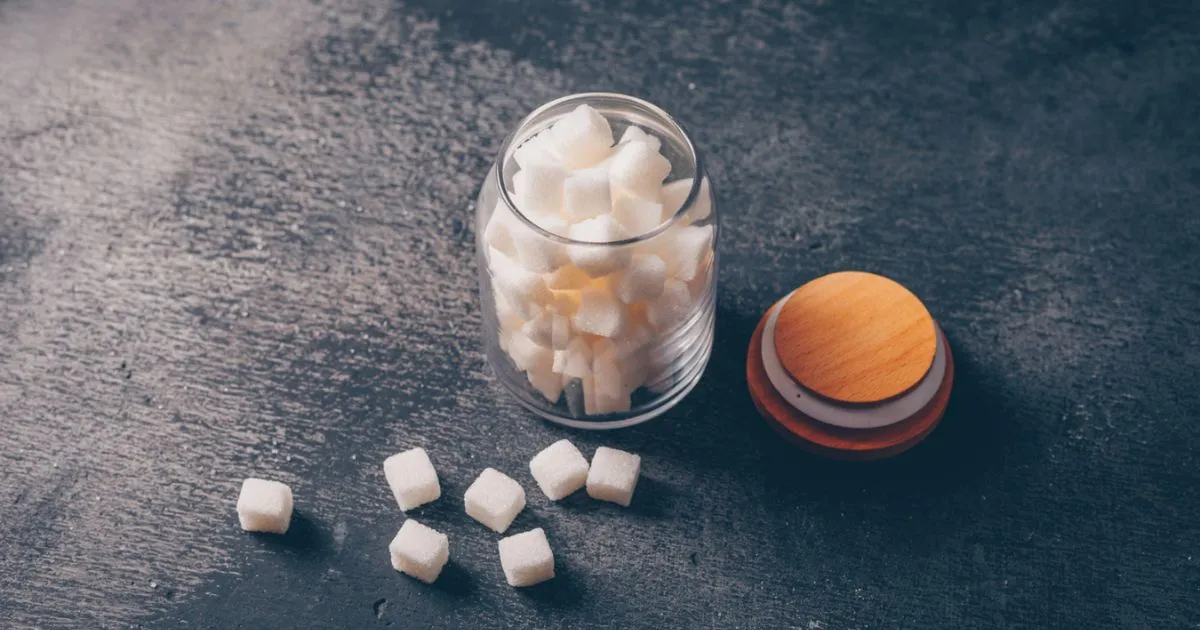A Sweet Moment, Then the Crash: Why You Wonder About Sugar
You take a bite of cake, sip a soda, or indulge in a piece of chocolate. Within minutes, there’s a lift in your mood and energy, almost like a quick spark that keeps you going. But then, not long after, you feel sluggish, thirsty, or maybe even irritable. If you’ve ever wondered how long does sugar stay in your body after eating, you’re not alone.
This question matters more than you think. It’s not just about curiosity—it’s about your health, your energy, and even your risk of conditions like diabetes or heart disease. Understanding how sugar moves through your system gives you the power to take control of your body’s responses.
Table of Contents
What Happens to Sugar When You Eat It?
The journey of sugar in your body is surprisingly fast.
When you eat something sweet, your digestive system starts breaking it down almost immediately. Here’s the process:
- Digestion begins in the mouth. Enzymes in your saliva begin to break down carbohydrates.
- Stomach and intestines continue the process. Sugars are converted into glucose, your body’s main fuel.
- Glucose enters the bloodstream. Within 15–30 minutes, blood sugar levels rise.
- Insulin steps in. This hormone, produced by your pancreas, helps shuttle glucose into your cells.
The type of sugar you consume plays a huge role. Simple sugars like candy or soda hit your bloodstream quickly, while complex carbs (like whole grains) release glucose more slowly.
(Source: American Diabetes Association)
How Long Does Sugar Stay in Your Body After Eating?
The short answer: about 2–4 hours. But the long answer depends on you.
- In a healthy person with normal insulin function, blood sugar usually returns to baseline within a few hours.
- If you have insulin resistance or diabetes, sugar can linger in your bloodstream much longer.
- Physical activity can shorten that timeframe, while overeating sugary foods can extend it.
Quick Reference Table
| Factor | Typical Duration |
| Healthy metabolism | 2–3 hours |
| Insulin resistance/diabetes | 4+ hours |
| After exercise | Faster clearance |
| High sugar intake | Extended duration |
Factors That Influence How Long Sugar Stays in Your Body

1. Type of Sugar Consumed
- Refined sugars (soft drinks, candy) spike blood sugar quickly and take longer to stabilize.
- Natural sugars (fruits, honey) are paired with fiber, slowing absorption.
- Complex carbs (oats, legumes) digest gradually, keeping levels steadier.
2. Your Health Condition
- If you’re managing prediabetes or diabetes, sugar may remain elevated longer than average.
- For a deeper dive into how your body regulates glucose, see this guide: Understanding Blood and Sugar Levels.
3. Physical Activity
- Muscles act like sponges when you’re active, pulling glucose out of your bloodstream for fuel.
- Even a 15-minute walk after a meal can make a noticeable difference.
4. Other Influences
- Stress: Triggers cortisol, raising blood sugar.
- Sleep: Poor rest can reduce insulin sensitivity.
- Hydration: Water helps your kidneys filter excess sugar.
- Learn more about hydration’s impact here: Dehydration and Heart Rate.
Signs Sugar Is Still in Your System
How do you know sugar hasn’t cleared yet? Watch for these signs:
- Sudden bursts of energy followed by fatigue
- Headaches or dizziness (related reading)
- Feeling excessively thirsty
- Frequent urination
- Brain fog or difficulty concentrating
These symptoms are your body’s way of signaling that blood sugar hasn’t balanced out yet.
How to Help Your Body Process Sugar Faster
You can take simple steps to support your body in clearing sugar more efficiently.
1. Stay Active
- Go for a brisk walk after eating.
- Try light stretching or household chores to keep muscles working.
2. Stay Hydrated
- Drinking water supports kidney function.
- Adequate hydration helps flush excess glucose.
3. Eat Fiber and Protein with Carbs
- Adding vegetables, beans, or lean protein slows sugar absorption.
- Prevents sharp spikes and crashes.
4. Monitor Portion Sizes
- Overeating sugary foods overwhelms insulin.
- Keep portions small, especially with desserts or sweet drinks.
Long-Term Impact of Sugar on the Body
Occasional treats aren’t harmful—but frequent spikes in blood sugar can build into bigger problems.
- Weight gain from excess stored sugar.
- Type 2 diabetes from prolonged insulin resistance.
- Heart disease risks due to chronic inflammation and poor lipid control.
- Fatigue and mood swings from blood sugar fluctuations.
For example, fatigue is also linked to cholesterol issues—see Does High Cholesterol Make You Tired? for a related perspective.
(Source: Harvard Health)
FAQ – How Long Does Sugar Stay in Your Body?
1. How long does sugar stay in your bloodstream after eating?
Usually 2–4 hours, depending on health, activity, and what you ate.
2. Does exercise remove sugar from your body faster?
Yes. Muscles burn glucose for energy, reducing sugar levels.
3. Can drinking water lower blood sugar quickly?
Water won’t lower sugar instantly, but it supports your kidneys in filtering it out.
4. How long does sugar from fruit stay in your body?
Natural sugars in fruit are absorbed more slowly, clearing faster thanks to fiber.
5. Does sugar stay in the body longer if you have diabetes?
Yes. If your body doesn’t use insulin effectively, sugar lingers longer.
Conclusion – Taking Control of Sugar in Your Body
Sugar doesn’t stay in your system forever—but your habits, health, and choices decide how long it lingers. By staying active, drinking enough water, eating balanced meals, and being mindful of portions, you can help your body manage sugar better.
The next time you enjoy something sweet, remember: a little awareness goes a long way toward keeping your energy stable and your health in balance.
👉 Want to understand more about how your body handles sugar? Read this guide: How Long Does Sugar Stay in Your System?.

